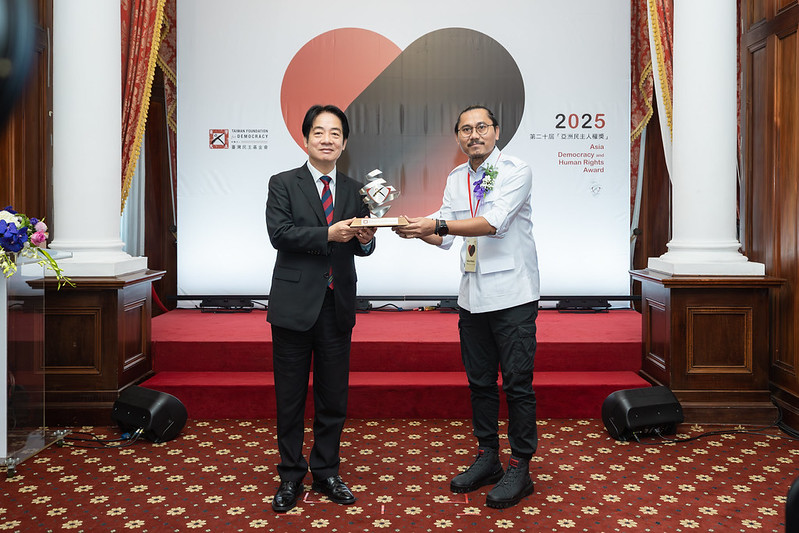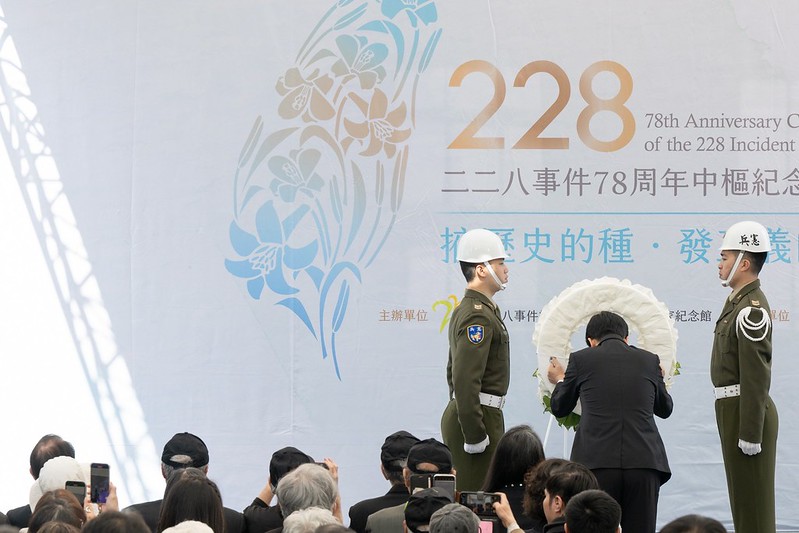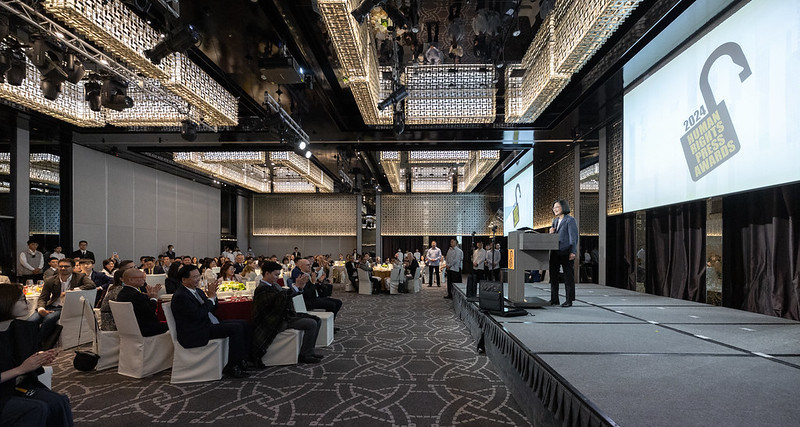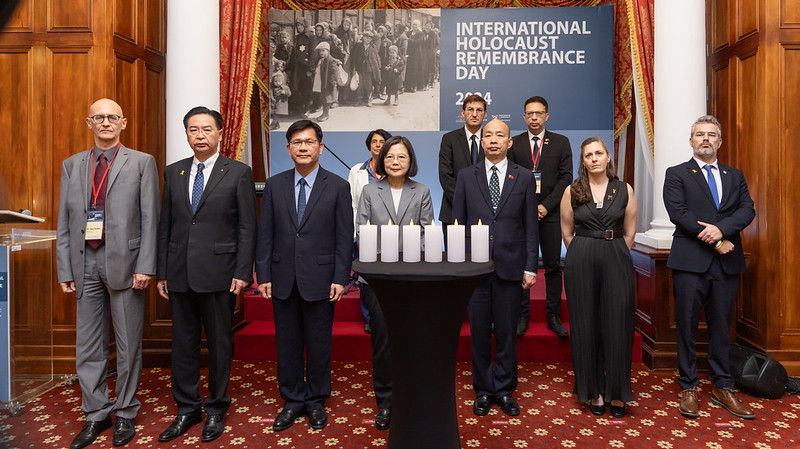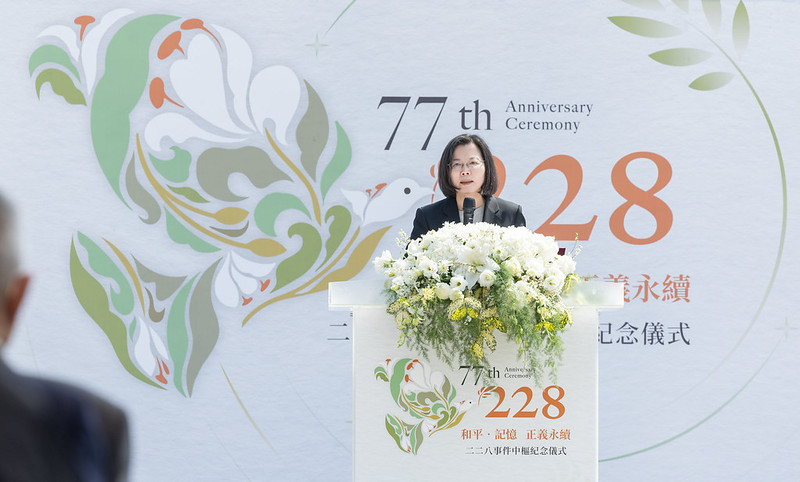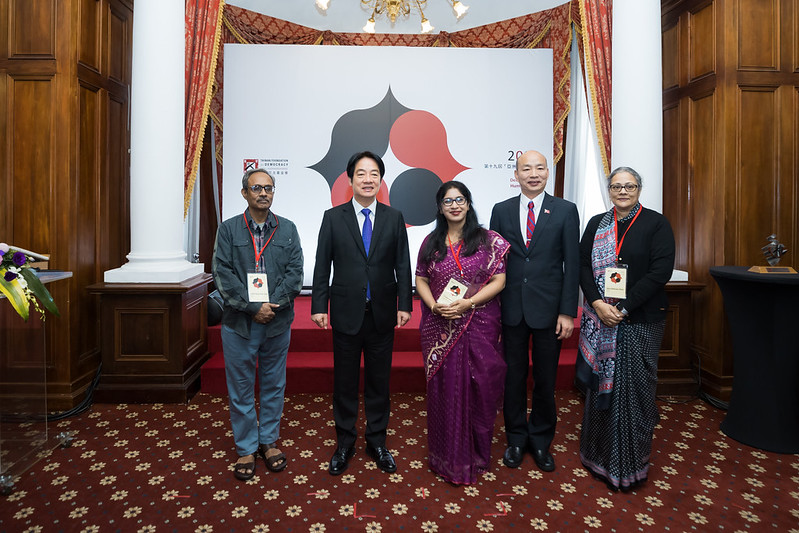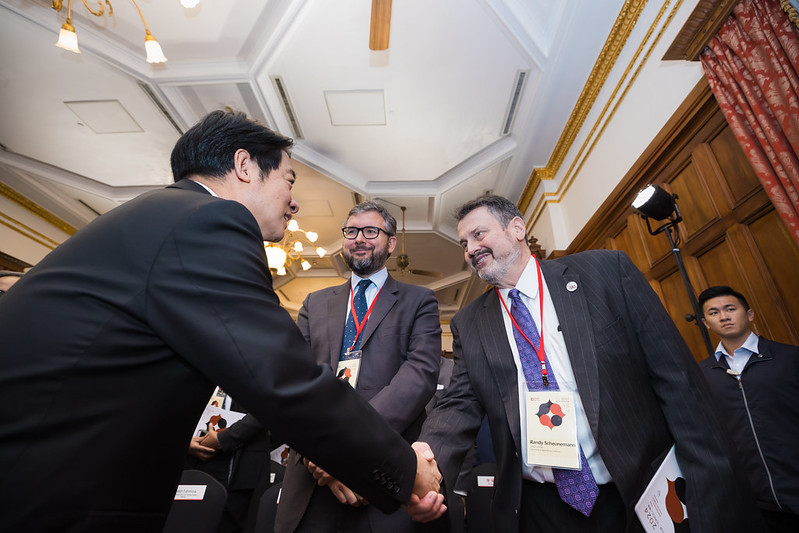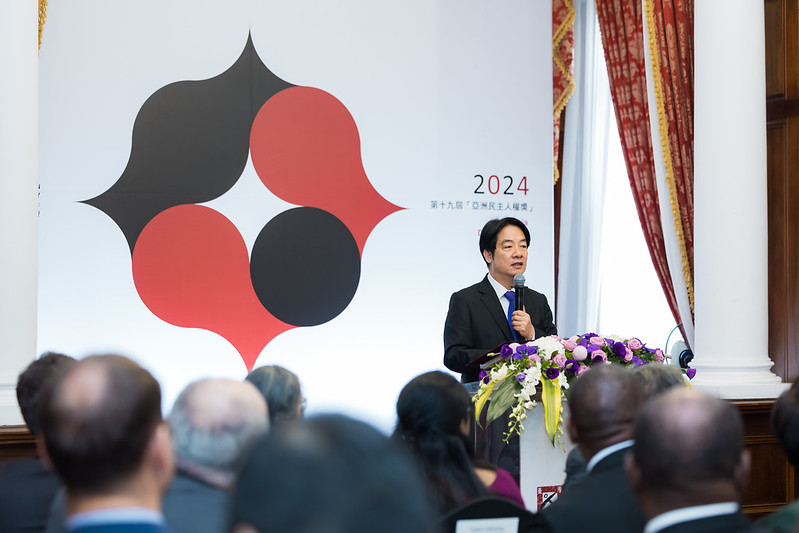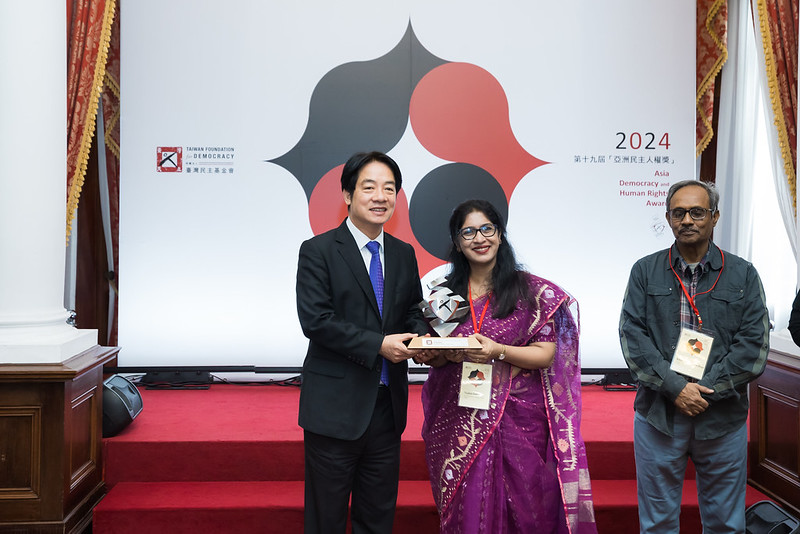News & activities
 News releases
News releases
On the morning of December 10, President Lai Ching-te presented the 2024 Asia Democracy and Human Rights Award to Bangladesh-based human rights organization Odhikar. In his remarks, President Lai recognized Odhikar’s dedication to promoting the human and political rights of the citizens of Bangladesh and courageously forging ahead in the pursuit of democracy and human rights. The president emphasized that defending democracy requires all the strength we can muster. He stated that the government of Taiwan will continue its efforts to strengthen Taiwan’s ability to defend democracy, and deepen partnerships with various countries to make global democracy more resilient.
A translation of President Lai’s remarks follows:
First, on behalf of the people of Taiwan, I want to offer sincere congratulations to Bangladesh-based human rights organization Odhikar, winner of the 2024 Asia Democracy and Human Rights Award.
The Taiwan Foundation for Democracy (TFD) upholds that in Taiwan, human rights are a pillar of the nation. The TFD established the Asia Democracy and Human Rights Award in 2006, and thanks to the leadership of its successive chairmen and presidents, this award has now become one of Asia’s highest honors. And under the leadership of Chairman Han Kuo-yu (韓國瑜), it will continue to strengthen Taiwan’s links with the world. This award recognizes individuals or groups that have promoted democracy and defended human rights in Asia, and also conveys the values that Taiwan upholds.
Recipients of this award, just like Odhikar, have fought valiantly for freedom and human rights. Since its founding in 1994, Odhikar has been dedicated to promoting the human and political rights of the citizens of Bangladesh. The organization not only provides oversight and promotes accountability, but also publishes an annual human rights report that exposes neglected human rights abuses, so that unjust practices hidden in darkness can be brought to light.
Members of Odhikar’s team have long faced severe difficulties while conducting human rights work, including harassment, imprisonment, and surveillance. Nevertheless, all have maintained an indomitable fighting spirit, courageously forging ahead in the pursuit of democracy and human rights, which is truly admirable.
Taiwan, like Bangladesh, has experienced the suppression and coercion of authoritarian rule. But thanks to the dedication of many democracy activists and defenders of human rights, the people of Taiwan now enjoy a free and democratic way of life, and can use their ballots to determine the future of their own country.
Taiwan is now a vibrant democratic society on the frontline of the defense of democracy. In recent years, disinformation and cognitive warfare have become challenges for all democracies. Through the Global Cooperation and Training Framework (GCTF), Taiwan has continuously expanded cooperation with various partner countries, exchanging experiences and strategies to counter disinformation.
In September this year, for example, a GCTF overseas workshop was held in Lithuania for the first time, exploring how to deal with foreign information manipulation and interference during elections.
Looking ahead, the government of Taiwan will continue its efforts to strengthen our ability to defend democracy, and deepen our partnerships with various countries to make global democracy more resilient.
I also want to emphasize that defending democracy requires all the strength we can muster. So today, on Human Rights Day, I am honored to congratulate Odhikar in person, and thank you all for sharing your ideas and experiences with Taiwan’s society to forge an even greater force for progress.
I look forward to a world with more civil society organizations like Odhikar to strengthen the bulwarks of freedom and human rights, and I firmly believe that into the future, your courageous convictions will be carried forward here in Taiwan. Let’s continue our efforts.
Members of the foreign diplomatic corps stationed in Taiwan were also in attendance at the event.
